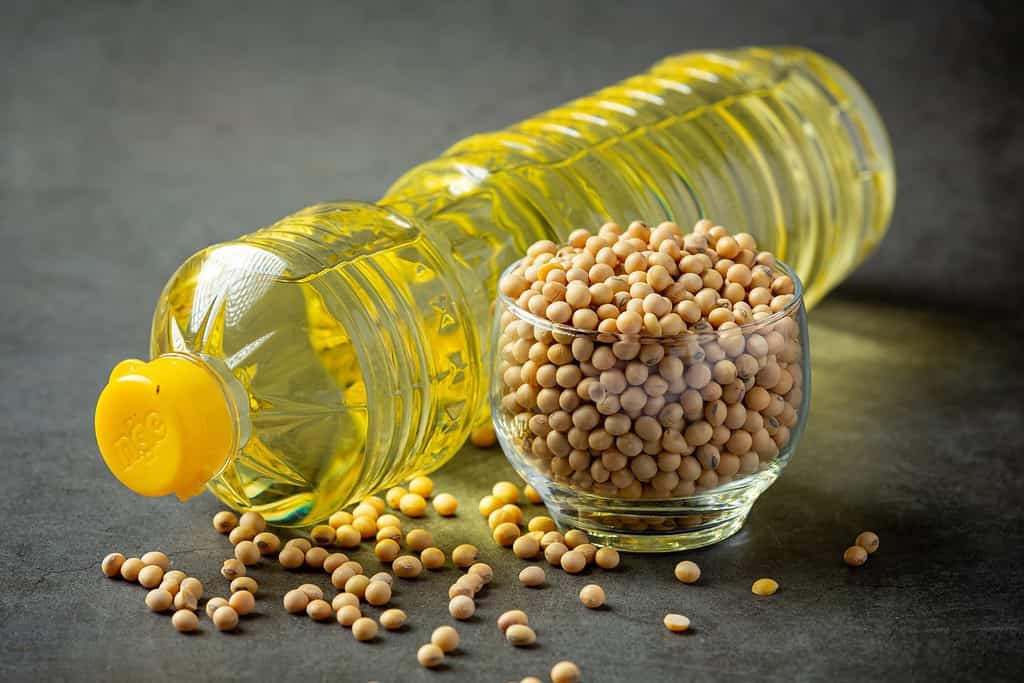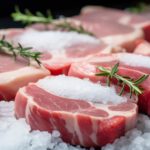
Stephanie Glass
(BFoodTech, DipBusL7, CHLC, MBP)
Fats are usually added to plant-based meat alternatives to meet the fat contents that an animal product would naturally have.
Although seeds and nuts are sources of fat, they are usually used in small proportions, if at all.
The most commercially used vegetable fats sources are
- soybean
- sunflower
- canola
- corn
- cottonseed oils
The oils are extracted mechanically or chemically and then refined, deodorized and decolourised. If further processed, they are hydrogenated to make saturated solid fats.
Another source that is widely used is palm oil which is a natural source of saturated fats. And finally, to a smaller extent unrefined sources like olive and coconut oil.
Refined vegetables oils
These oils are declared in the ingredient list by their origin name (e.g. canola oil), or as vegetable oils which can include a mixture of oils (e.g. a mixture of sunflower and maize oil).
Many vegetable oils are refined to make them
- odourless
- homogenic
- free from sediments
In this process the oil is extracted by pressing and the use of solvents. During the pressing process, the oil is exposed to heat and the naturally occurring antioxidants are damaged.
These antioxidants prevent the oil from oxidising and becoming harmful, and therefore other sources of antioxidants are added to the final product.
Synthetic antioxidants like BHT are best to be avoided as a continued ingestion of it can lead to toxicity.[1] Instead, look out for natural antioxidants like vitamin E.
Refined vegetable oils are most used because of low cost
Vegetable oils are a source of omega-6 fatty acids, which are essential in our diet. However, the intensive use in the food industry has led to an overconsumption of these nutrients.
Excess of omega-6 fatty acids causes chronic inflammation, which can lead to
- cardiovascular problems
- autoimmune diseases
- mental diseases
- stroke
- diabetes[2]
RELATED — Diabetes: Early Signs, Causes, Types and Treatment
Meat substitutes will most likely have at least one of the refined oils to increase the fat content in the product.
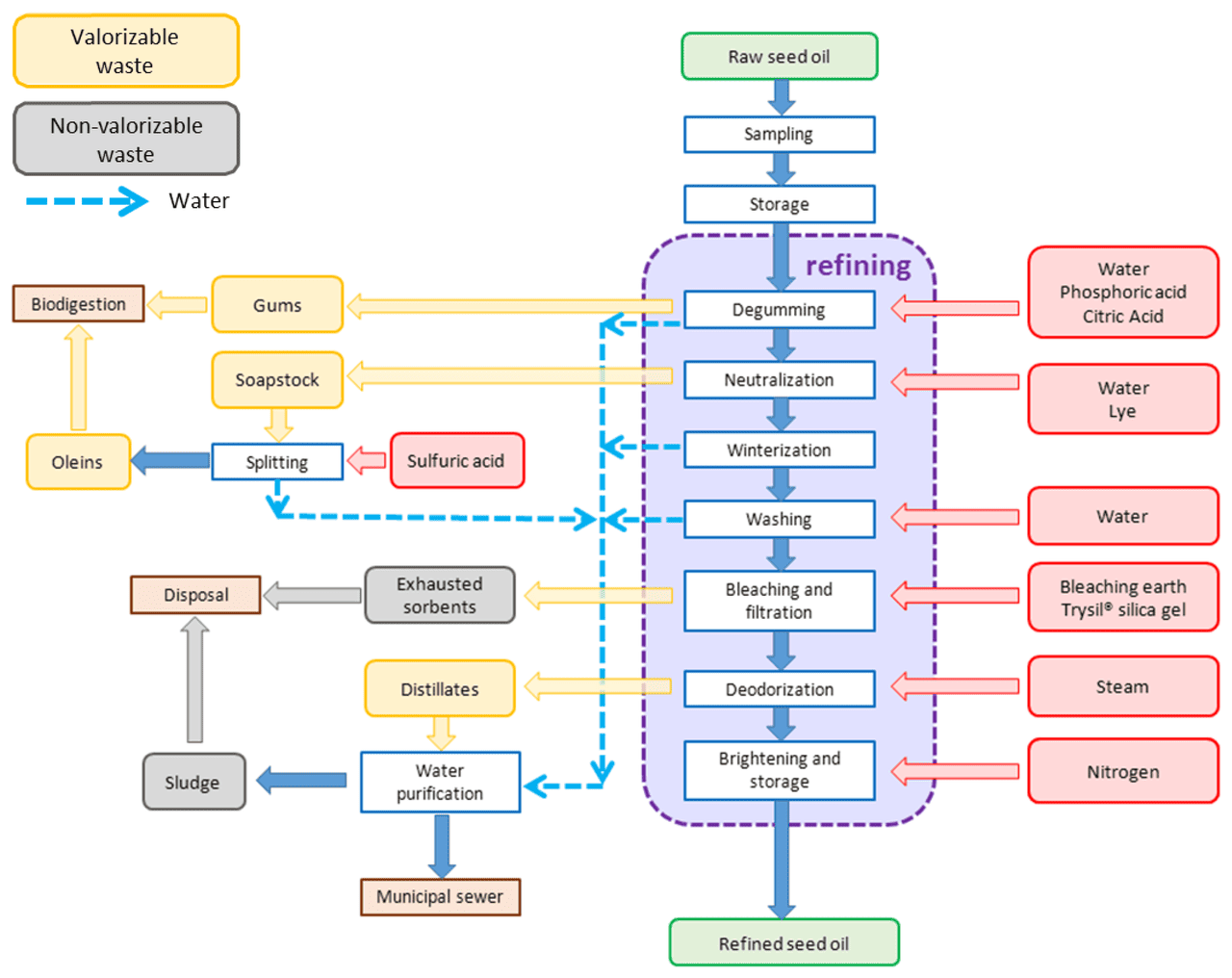
Source: Casali, B. Enzymatic Methods for the Manipulation and Valorization of Soapstock from Vegetable Oil Refining Processes. (2021)
However, these oils are present in a majority of processed foods, plant-based or not. This means that regular consumers of a processed food diet can be exposed to them in excessive quantities.
Summary — refined oils are widely used in the food industry and the excess of their consumption can cause chronic inflammation.
Hydrogenated vegetable oils
Hydrogenated vegetable oils are refined oils that have been further processed to make them solid (e.g. vegetable spreads, margarine or vegan butter).
In this process the unsaturated fatty acids are hydrogenated to become saturated and solid.
RELATED — Types of Fats: Healthy and Unhealthy Dietary Fats
Hydrogenated vegetable oils are also used in the food industry, as a butter replacement for all kinds of products, and not just plant-based.
Products that would normally contain hydrogenated fats are:
- baked goods (croissants, brownies, cookies)
- baking powder mixtures (cake mixtures)
- pastry dough
- coffee creamers and coffee mixtures (powdered cappuccino, lattes)
- processed snacks
- ready-made or frozen desserts (pies, crumbles)
There is more than one hydrogenating method; some undergo a process in which no trans-fats are formed and the others do form trans-fats.[3]
Trans fatty acids increase the LDL (“bad”) cholesterol, and an excess of saturated fats can lead to cardiovascular diseases and induce chronic inflammation.
Hydrogenated fats in general are best to be avoided or reduced to a very small proportion of the diet. When choosing a hydrogenated oil, it is preferred to select one with no trans-fat, this can be identified in the nutritional information panel in the product’s packaging.
Summary — hydrogenated oils are vegetable oils that have been processed to become saturated fats. These oils can also have trans fatty acids that increase the risk of cardiovascular diseases.
Cold pressed oils
When oils are cold pressed or virgin, they have not undergone any further processing and therefore contain fats in their natural state.[4]
Cold pressed oils are delicate and prone to oxidation
This is why they are stored in dark containers to avoid light exposure.
Almost any oil is now available in its cold pressed or extra virgin version. When choosing an oil, it is important to consider what’s the intended use.
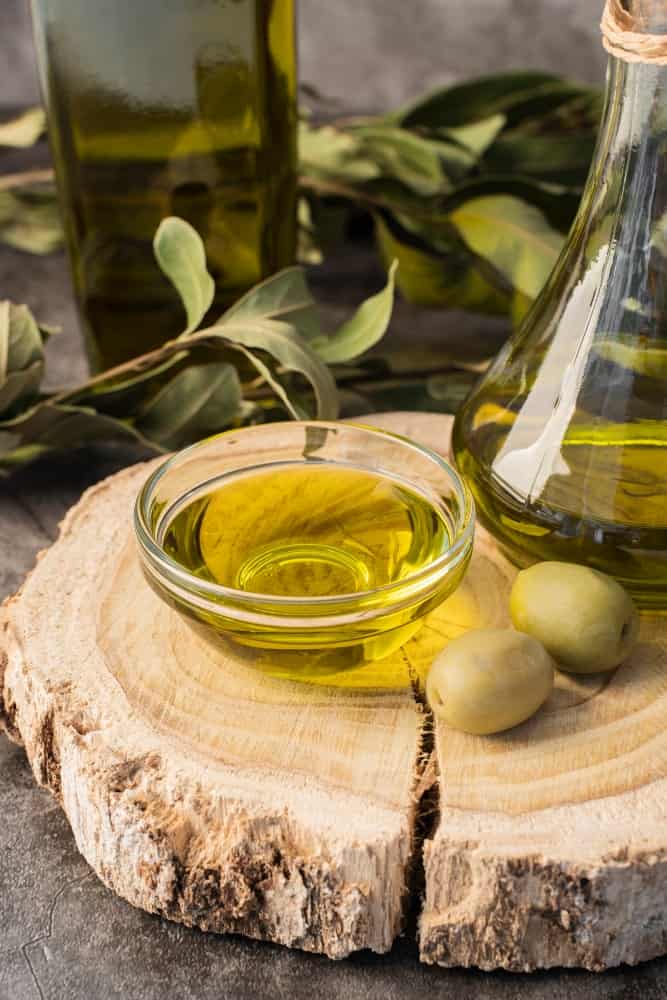
The best cooking oils are those that can withstand high temperatures with minimal damage, like coconut, macadamia and mustard oils. Whereas flaxseed, hemp and olive oils are preferred for raw preparations, given their omega-3 and omega-6 composition.
Virgin coconut oil is a more stable oil because of its large proportion of saturated oils, which are less prone to oxidation. This is why it makes a great cooking oil and does not need to be stored in a dark container. It can usually be found in plant-based bakery products.
Summary — cold pressed oils are unprocessed and contain naturally occurring antioxidants and vitamins. These oils are the healthiest to consume.
Oils and types of fats
The table below shows the fatty acid composition of edible oils and fats. Omega-9 fatty acids are monounsaturated, while Omega-3 and 6 are polyunsaturated.
As seen in the image below, spreads can contain a different composition of saturated fats, the higher the percentage of saturated fats, the harder the fat is and is therefore used for different purposes.[5]
The spreads that are reduced in fats are also used for reduced fat processed products, like pastry doughs.
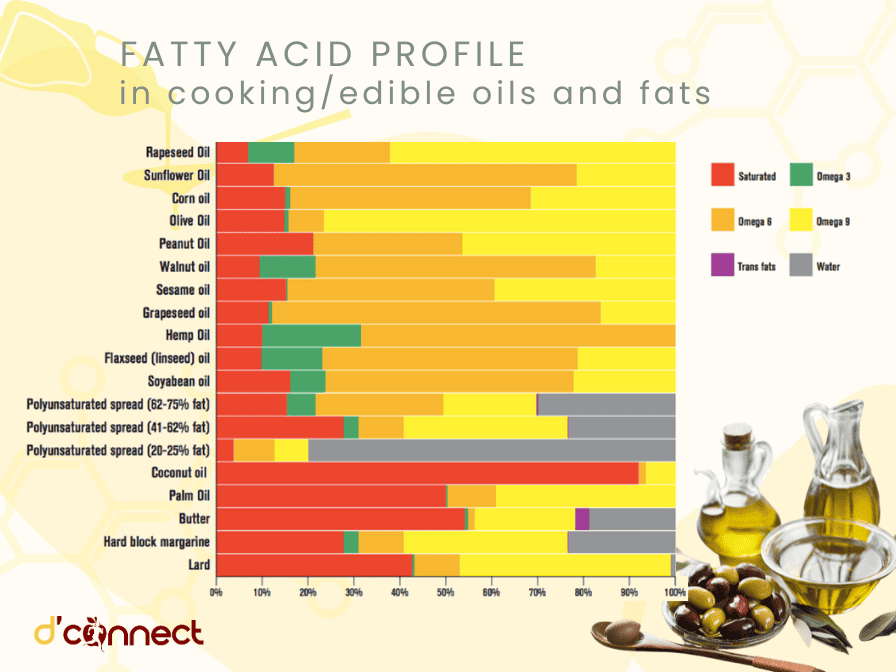
Note — feel free to download and share this illustration.
What are the preferred types of fats and which types should be avoided?
When choosing oils, it is always best to select the less processed options.
The more processed the oil, whether it is through refining or hydrogenating, the further away it is from its natural state.
When choosing an oil for consumption, cold pressed oils are preferred over refined ones. Look out for labels that state either “cold pressed” or “extra virgin”. Note that “virgin” or “pure” are not the same as extra virgin and they are either partially refined or mixed oils.
It is also important to consider the intended use; are you looking to cook or use the oil raw. As an example
- hemp oil
- flaxseed oil
- olive oil
- nut oils
are best to be eaten raw and preferred over corn, soy, sunflower, rice barn or peanut oil.
This is because of their optimal omega-3 and omega-6 ratio.
Remember to always read the ingredient list to know what the source of fat is. Products with seeds and nuts as a source of fat are also preferred over oil (e.g bliss balls made with nut butter vs oat bars made with oil).
Nuts and seed are also a source of protein, fibre and vitamins which are separated when extracting oil.
RELATED — Alternative to meat: Unprocessed plant-based protein sources
As a rule of thumb most processed foods have refined oils, so the less processed foods that are consumed, the better.
Related Questions
1. What plant has the highest fat content?
Nuts and seeds are the highest fat containing plants. Other plant based sources of fat include coconuts, avocados, olives, and legumes like peanuts and soy.
If you would like to know more about nuts, we have a 2-part article that you’ll find interesting — Anti-cancer foods: The Healthiest Nuts (Part 1).
2. What are tropical oils?
Tropical oils are those that are high in saturated fats and grow in tropical areas. These include
- coconut oil
- hydrogenated coconut oil
- palm oil
These oils are heavily used in processed foods all over the world.
3. What is the difference between animal and plant fats?
The difference between animal and plant-based fats is in the fatty acid composition profile.
Animal fats have a higher composition of saturated fats, and can also have cholesterol and naturally occurring trans fat.
Plant-based fats are higher in unsaturated fats, do not have any cholesterol and might have trans fat when processed to become saturated.
For both animal and plant fats, the composition also depends on the source. As an example, fish fat is different from red meat fat, and seed oils are different from legume oils.
For our previous article on the topic of plant-based products, we suggest reading Carbohydrates in plant-based products: Are they natural or processed?
Stephanie is a qualified Food Technologist, Certified Holistic Life & Nutrition Coach and Mind-Body Practitioner based in New Zealand. She has experience in R&D, Food Safety and Quality Assurance.
References
(1) Motarjemi, Y., Moy, G., & Todd, E. (2013). Encyclopedia of Food Safety. Academic Press.
(2) Strandvik, B. (2011). The omega-6/omega-3 ratio is of importance! [Review of The omega-6/omega-3 ratio is of importance!]. Prostaglandins, Leukotrienes, and Essential Fatty Acids, 85(6), 405–406.
(3) Patterson, H. B. W. (2009). Hydrogenation of Fats and Oils: Theory and Practice.
(4) Ramadan, M. F. (2020). Cold Pressed Oils: Green Technology, Bioactive Compounds, Functionality, and Applications. Academic Press.
(5) Fats and oils. (n.d.). Retrieved July 2, 2023, from https://www.heartuk.org.uk/low-cholesterol-foods/fats-and-oils

